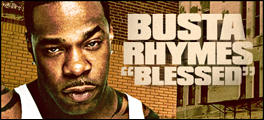heres a guide that i found on paladins the other day i found to be very helpful in understanding the nature of paladins.
http://docs.google.com/gview?a=v&q=c...ct&hl=en&gl=us
http://docs.google.com/gview?a=v&q=c...ct&hl=en&gl=us
There are no results that meet this criteria.





 ). In fact, paladins are supposed to radiate a certain 'warmth'. They care, they give hope. Only thing to keep in mind is that they'll do what is needed and what is possible within their code to put a stop to people who very obviously do not care, and who spread pain and despair to have their way. In other words, those who wittingly destroy what the paladin himself is trying to create. That is why a paladin shouldn't get along with the bad guys.
). In fact, paladins are supposed to radiate a certain 'warmth'. They care, they give hope. Only thing to keep in mind is that they'll do what is needed and what is possible within their code to put a stop to people who very obviously do not care, and who spread pain and despair to have their way. In other words, those who wittingly destroy what the paladin himself is trying to create. That is why a paladin shouldn't get along with the bad guys.
 Evil doesnt mean you dont care it is defined by your actions I think;
Evil doesnt mean you dont care it is defined by your actions I think;
Comment